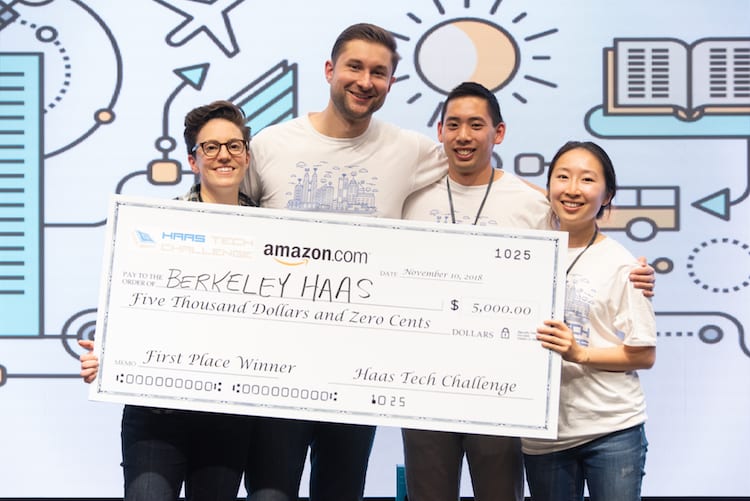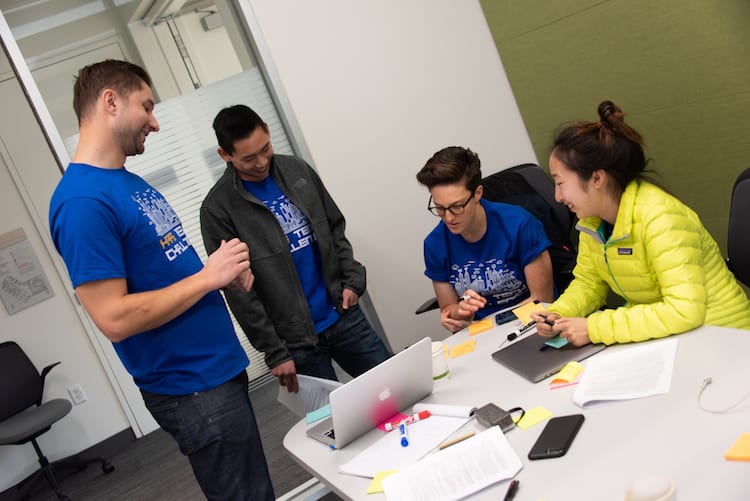
A team of Berkeley MBA students bested groups from seven schools to win the annual Berkeley Haas Tech Challenge for their plan to educate city government officials on how new technologies can support initiatives that improve quality of life and efficiency.
The 2018 Berkeley Haas Tech Challenge, called “Big Data and the City of Tomorrow,” was held Nov. 8-10.
The winning Haas team included Bryan Chiang, Catherine Hsieh, Max Kubicki, and Cori Land, all MBA 19s. Haas took home the $5,000 first-place award for the second year in a row.
The challenge called on students to come up with a plan to entice city government officials to adopt Amazon Web Services (AWS) to create smart cities. Smart cities use data and communications technologies to increase efficiency, share information with the public, and improve the quality of government services and public safety. Example projects include monitoring and managing traffic signals remotely, using a software platform that tracks the real-time availability of spaces in parking lots, and implementing a lighting-management system that allows cities to monitor energy efficiency and maintenance needs.
The Haas team began the Tech Challenge case by asking: Who are the customers, what do they care about, and how can AWS meet them where they are?
“We tested each of our ideas against whether or not it ultimately solved a problem for people,” Land said. “If not, we rejected the idea, and it helped us focus our recommendations.”
The Haas team made recommendations for a website redesign that would provide easy-to-understand smart cities information to non-technical city planners, as well as new certification programs to educate government officials on how they could use AWS.
(Left to right) Max Kubicki, Bryan Chiang, Cori Land, and Catherine Hsieh prepare their presentation. Photos: Benny Johnson.
The team also proposed a dashboard tool to help city officials compare their city services to others that have adopted smart cities technology—and measure the potential return-on-investment for their proposed projects.
Confidence without attitude may have been what set the Haas team apart from competitors. “One judge kept thanking us for admitting we still had some work to do when we better understood some gaps in our plan,” Hsieh said. Another Haas strength was leveraging broader perspectives by assembling a team with different areas of expertise, ranging from finance and energy to design thinking and change management.
Evan Cory and Charlie Cubeta, Tech Challenge co-chairs who organized the competition for the Haas Tech Club, said they received 108 team applications from 15 schools for the competition, a 25 percent increase over last year.
Competing teams included Yale, Kellogg, Columbia, Chicago Booth, MIT Sloan, UCLA, and Wharton. Eight Amazon executives served as coaches and judges.